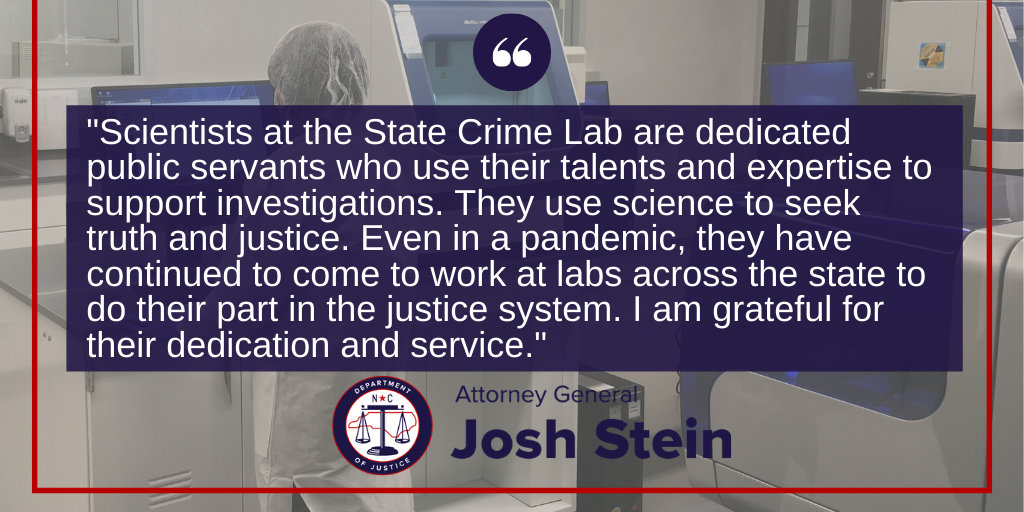
For Immediate Release:
Friday, September 18, 2020
Contact:
Laura Brewer (919) 716-6484
(RALEIGH) Attorney General Josh Stein and the North Carolina State Crime Laboratory today recognized Sept. 20-26, 2020, as National Forensic Science Week, following a proclamation from Gov. Roy Cooper. National Forensic Science Week highlights the vital role that forensic science and forensic scientists play in advancing investigations, solving crimes, and keeping people safe.
“Scientists at the State Crime Lab are dedicated public servants who use their talents and expertise to support investigations,” said Attorney General Josh Stein. “They use science to seek truth and justice. Even in a pandemic, they have continued to come to work at labs across the state to do their part in the justice system. I am grateful for their dedication and service.”
The State Crime Lab, headed by Director Vanessa Martinucci, operates a full-service laboratory in Raleigh, a Western Regional Crime Lab in Edneyville, and a Triad Regional Crime Lab in Greensboro. Scientists at the lab process crime scenes, collect and examine evidence, and provide expert testimony and consultation on evidence.
Forensic scientists at the lab work in several key disciplines:
- Drug chemistry and toxicology – chemical analysis of materials suspected to contain controlled substances seized as part of a criminal investigation and analysis of blood and urine samples for the presence and absence of alcohol and other substances.
- Trace evidence – examination of small trace particles of evidence left behind at a crime scene, including hair, fiber, paint, glass, tape, fire debris, and gunshot residue.
- Digital evidence – analysis and enhancement of computer, video, and audio technology for evidence in investigations, often those related to crimes involving children.
- Latent evidence – development and identification of latent evidence that connects a suspect to a crime scene, including fingerprints, palm prints, and footprints.
- Firearms – examination and comparison of bullets, cartridge cases, and shotgun shells to determine if they were fired from a particular firearm.
- Forensic biology & DNA – analysis of evidence for the presence of bodily fluids and DNA. DNA profiles generated from evidence can be compared to DNA samples from victims and other subjects involved in a case, and can also be searched in CODIS, the national DNA database.
Learn more about the State Crime Lab’s work here.
###
